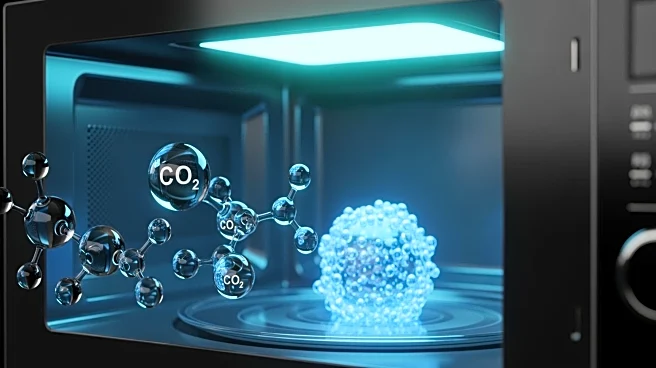What's Happening?
Researchers from the University of Tokyo have developed a microwave-focused heating method that selectively energizes atomic sites, making chemical reactions more efficient. This technique uses microwaves
to excite specific elements within target materials, achieving energy efficiencies 4.5 times higher than conventional methods. The approach focuses heat only where needed, reducing waste and potentially transforming industrial processes. The method could improve chemical synthesis and environmental benefits, such as CO2 conversion and fuel creation. The researchers aim to expand this concept to other chemical reactions and optimize catalyst design for scalability.
Why It's Important?
The development of this microwave technique represents a significant advancement in industrial chemistry, offering a more efficient and environmentally friendly approach to chemical reactions. By reducing energy waste and improving reaction efficiency, this method could contribute to lowering emissions and energy demand, addressing key challenges in climate change mitigation. The potential applications in CO2 conversion and fuel creation align with global efforts to transition to cleaner energy sources. This innovation could impact industries reliant on chemical synthesis, promoting sustainable practices and reducing environmental footprints.
What's Next?
The researchers plan to expand the technique to other chemical reactions and optimize catalyst design for durability and scalability. They aim to achieve pilot-scale demonstrations within the next decade, with broader industrial adoption depending on technological and energy infrastructure progress. Collaboration with corporate partners for joint development is sought to advance the technology. The challenge lies in scaling up the method for industrial use, addressing material requirements and improving measurement precision at the atomic scale.









